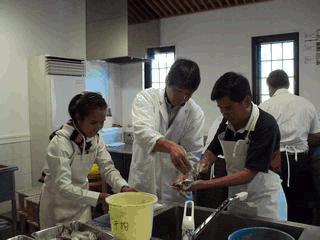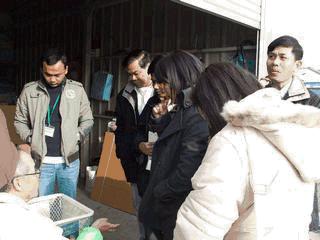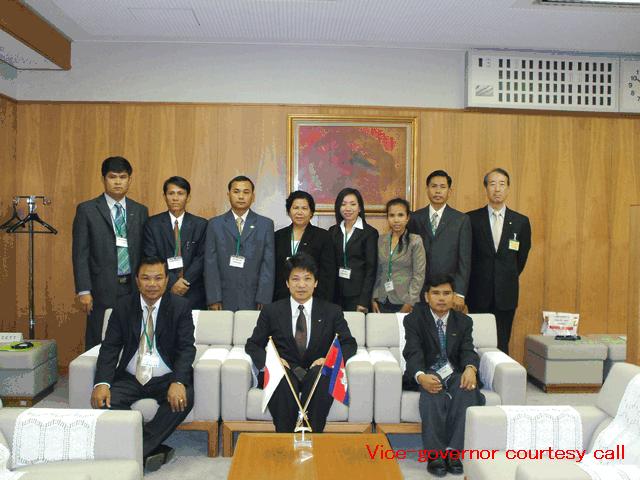Home > Workshop and Training > IN JAPAN > Fiscal Year 2008 > Environmental Cooperation Program for Asia (ECPA)
Main content starts here.
Update:January 6, 2009
Environmental Cooperation Program for Asia (ECPA)
ICETT has conducted the “Environmental Cooperation Program for Asia (ECPA)” commissioned by Mie Prefecture since 1998. The purpose is for local governments in Asia to decide on an environmental plan and encourage environment improvement as a part of the international environmental cooperation projects of Mie Prefecture. Environment improvement plans were made and environmental study centers were established in Imus City in the Philippines in FY1998-1999, in Rayong City in Thailand in FY2000-2001, in Probolinggo City in Indonesia in FY2002-2003, and in Ha Dong City in Viet Nam in FY2004-2005. Mongolia was selected in FY 2006-2007, and a project was carried out in Bayanzurkh District in the administrative district of the capital, Ulaanbaatar City. Emphasis was placed on Trainers Training (training participants involved in ICETT projects serve as instructors and leaders to establish a system for developing trainees) as the leader of this ECPA project and efforts were put into human resources development projects.
Sihanoukville, a special city in the Kingdom of Cambodia, was selected as the sixth country in this Fiscal Year. An Implementation Agreement was concluded while the current situation in environmental preservation was grasped, certain issues were narrowed down, and the basic environmental plan was decided. Few local governments or assisting organizations in Japan have been involved in helping environmental preservation of this city so far. As an increase in the number of tourists visiting the city from various countries, an expansion in the volume of trade, and an increased inflow of foreign currency are expected, more attention will be attracted to the importance of the basic environmental plan. Under such circumstances, the enlightenment seminar and receiving training were positioned as the “pillars” of this project.
In the enlightenment seminar and human resources development project in receiving training, the potential of policy implementation ability was elicited from the personnel in charge of policies in the city in strategy building in environmental preservation, sharing information in waste disposal, and understanding of tourism development in consideration for environment. The training placed stress on mastering basic knowledge of the basic environmental plan and decision making method (know-how) so that the training participants can implement polices as leading instructors.
This receiving training featured strengthening the involvement of the related parties along with the knowledge of the administrative officials of the environment, tourism and fishery departments, etc, in order to contribute to understanding of environmental preservation and promoting environmental preservation policies. Therefore business people and local residents were also invited to Japan. In the training, topics considered important in Sihanoukville were addressed, from environmental problem prevention to waste issues and preservation of water. Understanding and importance of environmental preservation in Japan were given deep recognition, aiming for implementation of practical measures in the country of the training participants. In receiving training, training participants shared knowledge of environmental preservation in Mie Prefecture in exchanging opinions with experts from the Department of Environment and Forestry in addition to an official visit to the deputy governor.
Environmental problems in Sihanoukville were recognized again in report presentation. After sharing the problems of each training participant, awareness of the problems was heightened through lectures on pollution in Yokkaichi City allowing environmental pollution prevention methods to be learned. Deeper understanding of the current situation of waste disposal as well as measures and policies for waste reduction was achieved, and the first basic environmental plan of the city was developed.
The basic environmental plan established in receiving training will be widely open to publicly involved parties and citizens of Sihanoukville City and implementation of practical measures toward environmental preservation will be encouraged under the cooperation of all parties in the future.











